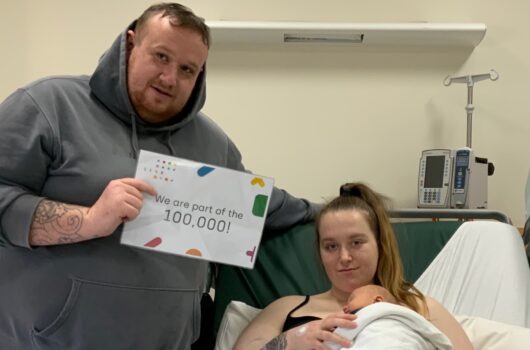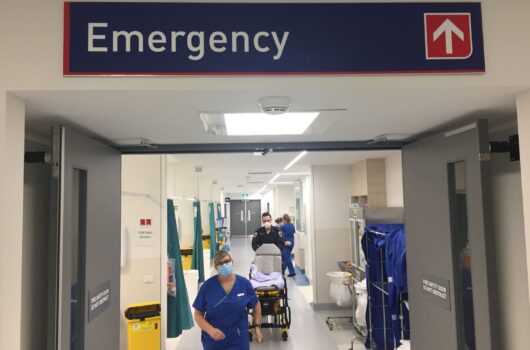Big hearts, big achievement

Latrobe Regional Health’s cardiac catheterisation laboratory has performed its 1000th coronary angiogram, in a major milestone for the expanding cardiology service.
The cath lab opened in 2018 and has an experienced team of nurses, cardiologists and cardiac physiologists led by Director of Cardiology Dr Derk Pol.
“The cath lab specialises in diagnosing heart problems and providing treatment options for patients. This includes inserting a stent, under-skin loop recorders or carrying out right heart studies which allow us to test the pressure in a patient’s lungs,” Dr Pol said.
The high-tech cath lab features special imaging systems and cameras which can track the passage of a catheter as it is moved closer to a patient’s heart.
“We insert the catheter through either the radial artery at the wrist or femoral artery at the groin and make our way to the heart,” Dr Pol said. “Once there we use a dye to give us greater vision of what’s going on for the patient and intervene where we need to. That might be assessing the vessels with a flow test and inserting a stent if needed, depending on the condition we see.”
“Once completed, we withdraw the catheter and the patient is on their way to recovery.”
Patients are awake throughout the procedure.
“We use local anaesthetic but we need the patient to be awake so they can tell us if they are experiencing any discomfort or chest pain,” Dr Pol said.
The cath lab at LRH is the only service of its type in Gippsland and the facilities are the envy of many regional and metropolitan hospitals according to LRH Chief Executive, Don McRae.
“It is considered state-of-the art and cardiologists have been really keen to travel to LRH to work in a spacious setting with an enthusiastic, highly-skilled team,” Mr McRae said.
“The cath lab is just one of the services we offer locally that historically people have had to travel to Melbourne for. Our cancer services are another example where we are providing top quality care here in Gippsland, treating more than 90 per cent of the cancers usually seen by metropolitan hospitals.
“And last year, with the community’s generous support, we were able to purchase an electroencephalogram (EEG) scanner to support the work of our neurologists, particularly with people experiencing epilepsy.”
To learn more about the services available at LRH go to https://lrh.com.au/find-a-service/






